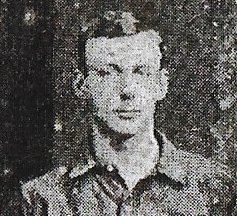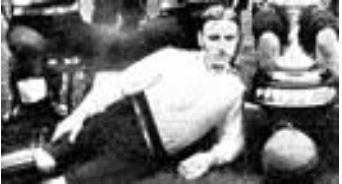William Black, a Blue from the Hebrides
Born within the sight and sound of burning sparks and roaring bellows, William Black was the first football player to arrive at Goodison Park who had been born in the mist-covered islands of the Inner Hebrides, where his father, Duncan, had chosen to make a home for himself and his wife, Catherine. The couple had first met – and married – at Blackburn Street in the Plantation area of Govan (now part of Glasgow) where their first child, Duncan junior, was born. Shortly after this event, Duncan accepted the position of Village Blacksmith at Torosay on the Island of…



